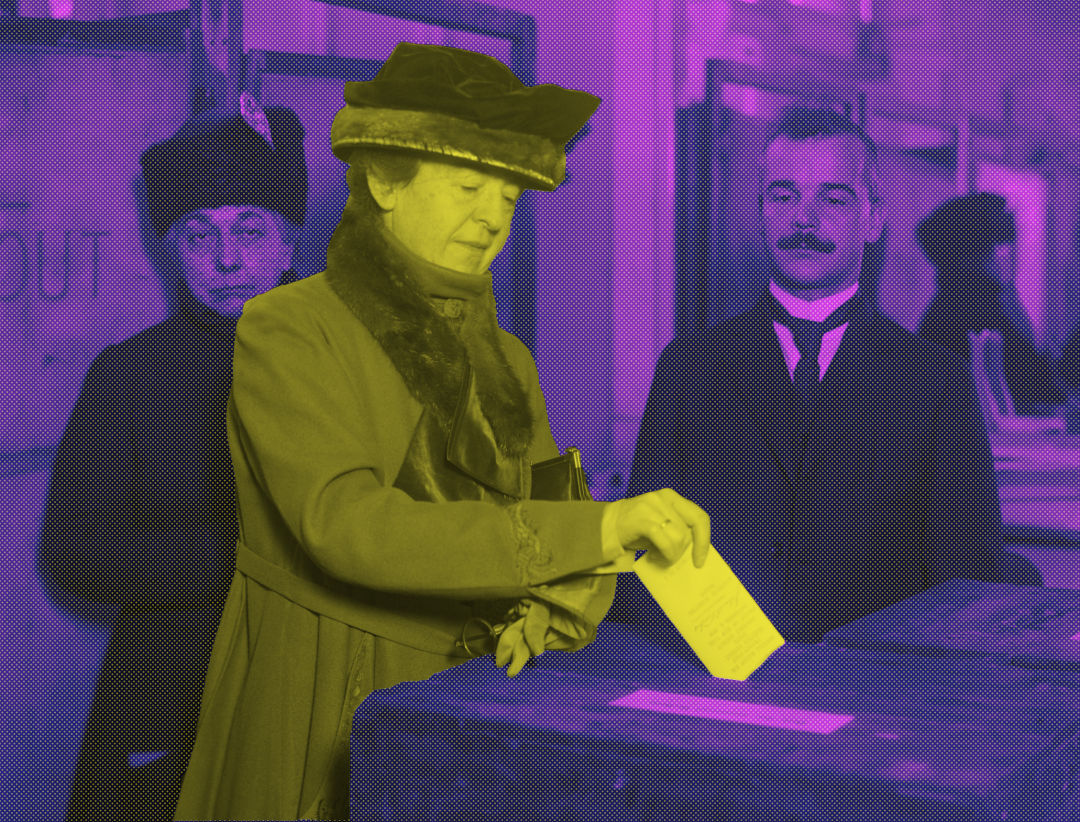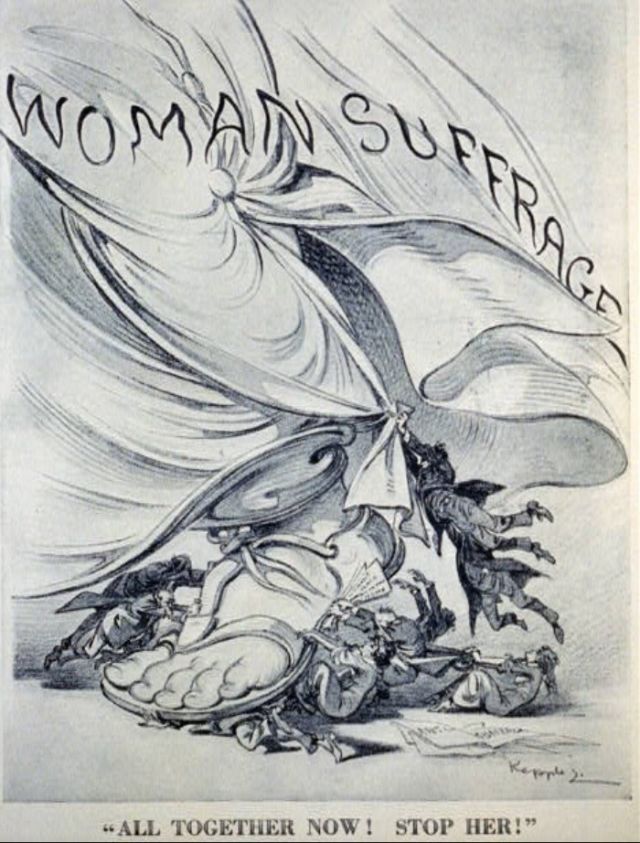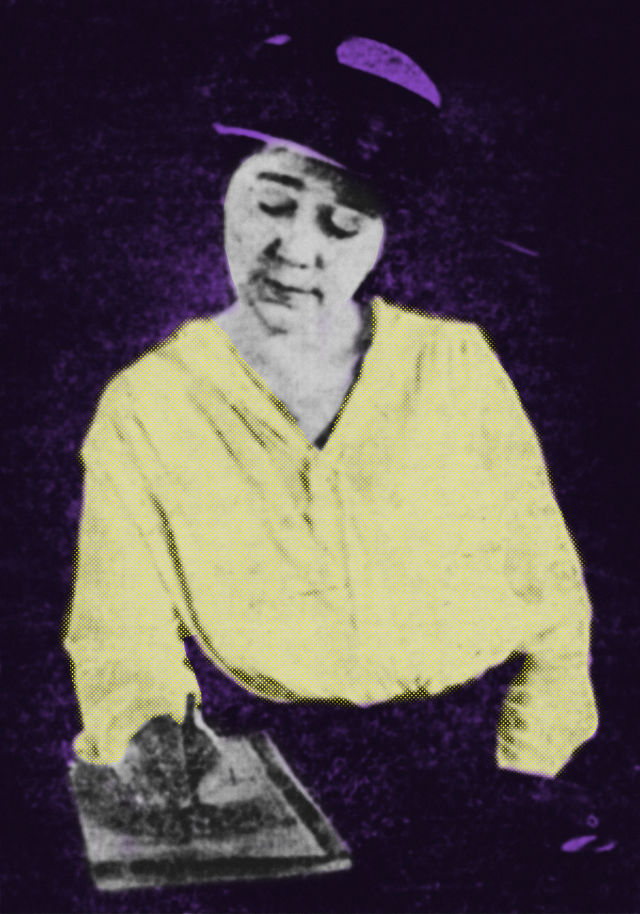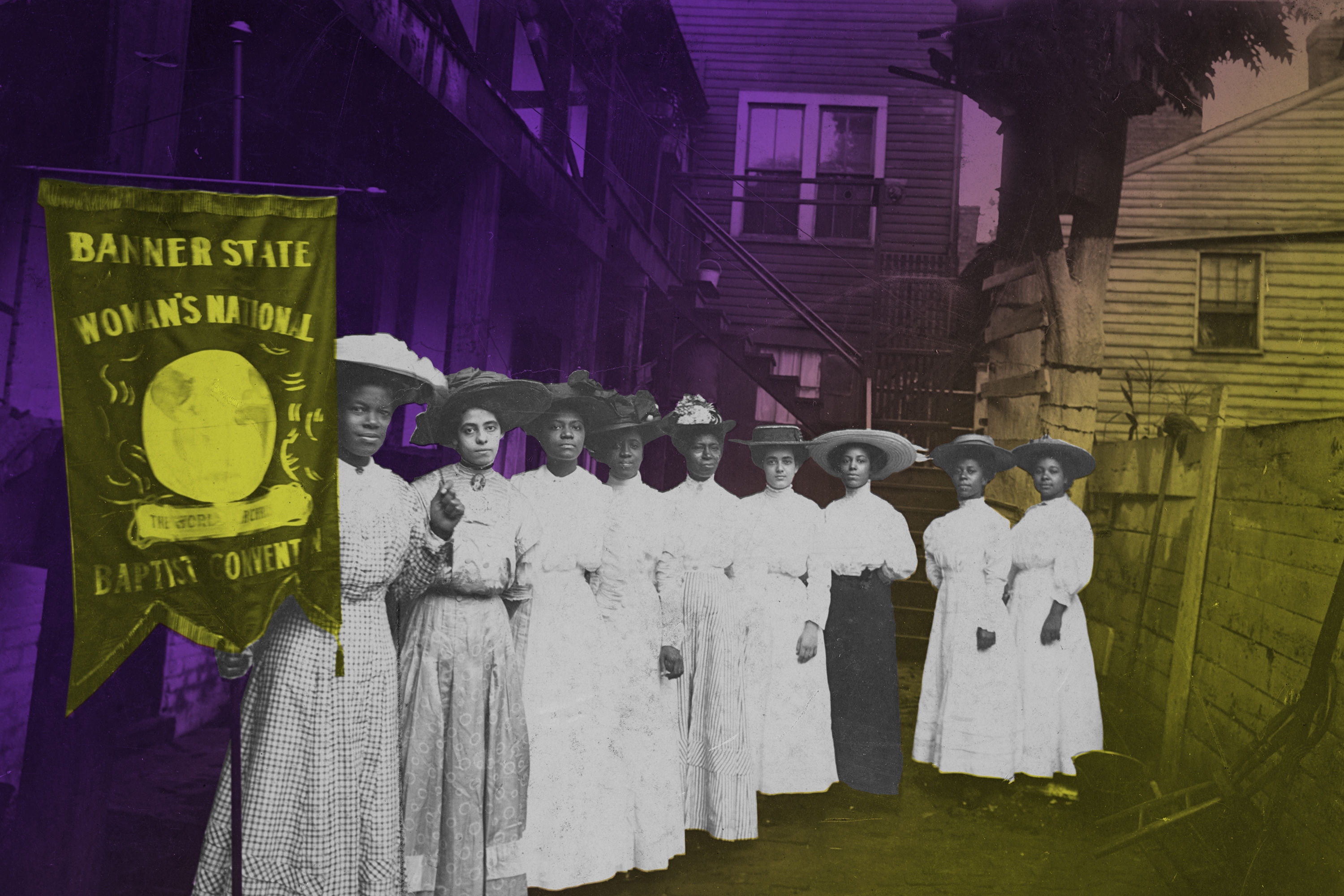Did You Know Houston Women Could Actually Vote Before 1920?

This year, the nation is celebrating 100 years of women winning the right to vote, but really, Houston’s centennial celebration was due two years ago. That’s right, Texas was the only Southern state where women got the right to vote (albeit with several caveats) before the 19th Amendment came along.
How, you might ask? Let’s take a trip down memory lane—when the sun was less hot, and misogyny was even less disguised.
Early Days
According to Betty Chapman, local historian and co-curator of the Heritage Society’s Houston suffrage exhibit, the fight for women’s voting rights was extremely slow moving. Though the battle for the ballot had been surging since the 1840s, Texas’s suffrage story didn’t begin in earnest until 1903. Enter the Finnigan sisters: Annette, Elizabeth, and Katherine, three wealthy, college-educated Houston women.

With Annette at the helm, the sisters organized suffrage clubs in Houston and Galveston, the first of their kind in the region. Annette Finnigan “had been involved in the suffrage movement in New York City after graduating from Wellesley College,” Chapman says. “And she had seen what they were doing—they were getting out there. She thought it needed to be done here.”
Delegates of those clubs met in Houston that December to establish the Texas Equal Suffrage Association (TESA), the state’s chapter of the National American Woman Suffrage Association, and elected Annette Finnigan as its first president. After losing steam from 1905 to 1911, the suffrage movement within the Lone Star State came surging back in 1912, and the TESA exploded, amassing 80 local chapters by 1918. No longer confined to the society pages of local newspapers, their activism became harder for Texas’s all-male legislature to ignore.
Fight for Her Right
Things get even more interesting in late 1917; Texas Gov. James “Pa” Ferguson, a vehement anti-suffragist, was impeached and succeeded by his lieutenant governor, William P. Hobby. Texas suffragists saw a golden opportunity to drive their cause to victory and soon traveled to the state capitol to lobby legislators to support a primary suffrage bill (a safer bet than trying to win full suffrage). Among those lobbyists were prolific Houstonian activists like Hortense Sparks Ward, president of the organization’s Houston chapter and the first woman to be admitted to the Texas State Bar. They made a deal with Hobby: If he supported the bill, he could count on their support in the upcoming gubernatorial election.

Hortense Sparks Ward prepares to sign the first voting-registration receipt issued to a woman in Harris County in this newspaper clip from the Houston Post.
V for Victory
Thanks to the tireless efforts of these suffragists, the primary bill passed through the Texas Legislature in March 1918 and went into effect just three months later—leaving women only 17 days to register to vote in the July primary. But that didn’t stop them. Ward made history on June 27, 1918, when she became the first woman in Harris County to register, and more than 380,000 Texas women followed her lead over the next 17 days (according to an article in The Houston Review, 14,750 of those women lived in Harris County).
Of course, it’s important to remember this victory could not be fully enjoyed by women of color. African American women living in the Jim Crow South would face disenfranchisement until the passage of the Voting Rights Act in 1965.
Election Day came, and the suffragists made good on their promise to Hobby, who was reelected as governor. More than that, a Houston Post article credited the Bayou City’s women suffrage organization for his primary victory, which he won by a margin of 244,467 votes. Just a year later, in June 1919, Texas became the ninth U.S. state and first Southern state to ratify the 19th Amendment, a mere 24 days after it passed the U.S. Senate.




